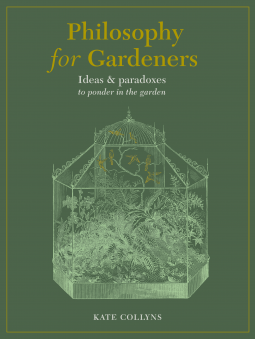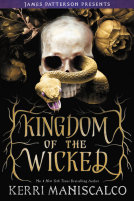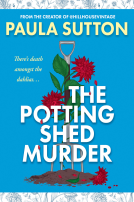
Philosophy for Gardeners
Ideas and paradoxes to ponder in the garden
by Kate Collyns
This title was previously available on NetGalley and is now archived.
Send NetGalley books directly to your Kindle or Kindle app
1
To read on a Kindle or Kindle app, please add kindle@netgalley.com as an approved email address to receive files in your Amazon account. Click here for step-by-step instructions.
2
Also find your Kindle email address within your Amazon account, and enter it here.
Pub Date May 03 2022 | Archive Date Mar 24 2022
Quarto Publishing Group – White Lion | Frances Lincoln
Talking about this book? Use #PhilosophyforGardeners #NetGalley. More hashtag tips!
Description
Gardening is an innately thoughtful as well as practical pastime: planning ahead, imagining how plants will grow, deciding what will make a 'good' garden, wondering at the beauty of flowers and noticing how ecosystems work.
This delightful and engaging collection of essays illustrate how many philosophical ideas arise naturally in gardeners’ everyday work.
Growers by their nature are in fact already philosophers:
- existentialists who try to live and work by their own rules in a garden;
- stoics who put up with slug damage again and again, and try to work in harmony with nature;
- and practical quantum scientists who witness incredible processes going on in plant cells beneath the ground.
In Philosophy for Gardeners, Kate Collyns uses aspects of gardening to introduce and explore a range of philosophical ideas and schools of thought; cultivating a greater understanding and appreciation of intriguing concepts, propagated from science, evolution and aesthetics through to politics, economics and ethics.
Broken into four sections, Soil, Growth, Harvest and Cycles, each section explores questions of philosophy through the lens of the garden. A fascinating read, this book is as perfect for students of philosophy as it is for gardeners, filled with thought-provoking reflections on life, being and existence.
Available Editions
| EDITION | Other Format |
| ISBN | 9780711268210 |
| PRICE | $18.00 (USD) |
| PAGES | 144 |
Featured Reviews
 Reviewer 677700
Reviewer 677700
Thank you to the author, publisher, and NetGalley for a copy of this book in exchange for honest feedback. Right off the bat, I was really interested in this book due to its combination of philosophy and gardening. This book is separated into sections such as 1) Mysteries of the Soil (Plato), 2) Growth (Darwin), 3) The kindness of plants (game theory).... there are a variety of black and white illustrations that come alongside the passages. No particular passage goes on too long, which allows for a good pace & a variety of content.
I want to take my favorite section as part of the review. This excerpt is the "The Kindness of Plants" section in Chapter 7. The thematic question is, "Can plants be altruistic to maintain their family's genetic continuity, just as humans fight for their welfare of members of their own tribe?" This chapter is brief, but it has a lot of informative content about evolutionary theory and how it relates to the survival of nature. I really liked the connection to Robert Axelrod's computer experiments and cooperative behavior / game theory. It is clear that the author is informed and highly educated in their grappling with philosophy and nature. The reason why I think it's so clear is that the philosophical and natural discourse is conveyed clearly, thus being accessible to a layperson or beginner. I sometimes find philosophy discourse dense, perhaps due to its abstract nature or the wordiness. This book is not like that, it's consumable and good for anyone who has an interest in these topics. I think I envision this book being a great gift for a botany student.... it's like, a good combination in botany, science, philosophy, etc.
Readers who liked this book also liked:
Keith Martin; Konstantinos Mersinas; Guido Schmitz; Jassim Happa
Business, Leadership, Finance, Computers & Technology, Reference
Vincent B. "Chip" LoCoco
Historical Fiction, Horror, Mystery & Thrillers


















